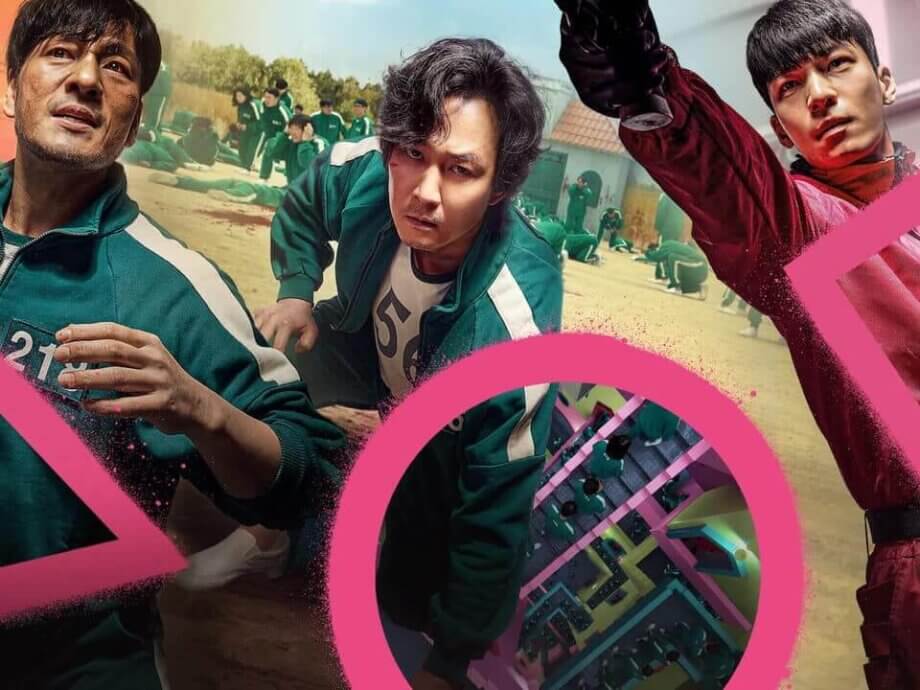Squid Game Season 3: The End of a Global Sensation
Netflix’s Squid Game has captivated audiences worldwide since its explosive debut in 2021, blending brutal survival games with sharp social commentary and deeply human stories. Now, with the release of its third and final season, the series attempts to bring closure to its harrowing tale of desperation, betrayal, and the cost of survival. Season 3 arrives just six months after the second season, continuing the story almost seamlessly and promising to answer lingering questions while raising the emotional and narrative stakes higher than ever before.
- Squid Game Season 3: The End of a Global Sensation
- Picking Up the Pieces: Where Season 3 Begins
- New Twists, Old Wounds: The Games and Their Consequences
- Performances That Anchor the Chaos
- The VIPs and the Limits of Satire
- Side Plots and Narrative Sprawl
- Emotional Devastation and the Cost of Survival
- The Finale: Closure, Shock, and New Beginnings?
- Critical Reception: Divided but Impactful
- Legacy and the Future of Squid Game
- In Summary
As the curtain falls on this cultural juggernaut, critics and fans alike are dissecting its successes, shortcomings, and the legacy it leaves behind. Does the final season deliver a fitting conclusion, or does it stumble under the weight of its own ambition? Here’s an in-depth look at Squid Game Season 3—its plot, performances, themes, and the impact it’s had on television and society.
Picking Up the Pieces: Where Season 3 Begins
Season 3 picks up immediately after the failed rebellion that closed out the previous season. The aftermath is grim: most of the rebel players have been slaughtered, and only 60 contestants remain to compete for the ever-growing prize pool. Seong Gi-hun (Lee Jung-jae), the series’ protagonist, is left emotionally shattered by the loss of his closest ally and the crushing realization that his efforts to dismantle the games from within have failed. The Front Man (Lee Byung-hun), now revealed as a former champion and Gi-hun’s nemesis, resumes his role as the enigmatic game master, orchestrating the carnage from behind his mask.
Meanwhile, the games themselves resume with renewed brutality. The show wastes little time in thrusting viewers back into the deadly competitions, with new and returning games that test not only the contestants’ physical abilities but also their moral compasses. The stakes are higher, the violence more graphic, and the emotional toll on the players—and the audience—more profound than ever.
New Twists, Old Wounds: The Games and Their Consequences
One of the defining features of Squid Game has always been its inventive use of childhood games as the basis for life-or-death challenges. Season 3 continues this tradition, introducing new games like a vertigo-inducing version of Jump Rope and a labyrinthine Hide and Seek, while also revisiting classics from previous seasons. The spectacle is as visually arresting as ever, with production designer Chae Kyoung-sun once again transforming innocent playgrounds into arenas of terror.
However, critics have noted that the novelty of the games has begun to wane. As The Guardian and Rotten Tomatoes point out, the challenges in Season 3 sometimes feel like add-ons to a story that is increasingly sprawling and baggy. The focus shifts more toward the psychological and ethical dilemmas faced by the contestants, with the games serving as a backdrop for intense character drama.
One of the most talked-about twists this season is the introduction of a newborn baby as a contestant—a move that pushes the show’s dystopian logic to its limits and amplifies the sense of horror and helplessness. The baby, born to Jun-hee (Jo Yu-ri) and Myung-gi (Im Si-wan), becomes a pawn in the VIPs’ cruel entertainment, raising uncomfortable questions about innocence, exploitation, and the lengths to which the powerful will go for amusement.
Performances That Anchor the Chaos
Amid the chaos and carnage, the performances in Season 3 have been widely praised. Lee Jung-jae delivers what many critics consider the finest work of his career, embodying a Gi-hun who is nearly mute with grief and rage for much of the season. His physical transformation—reportedly losing 10 kilograms for the role—mirrors his character’s emotional descent. As Decider notes, Lee’s portrayal of a man battling not just external enemies but his own despair is “one of the greatest television performances of all time.”
Im Si-wan’s Myung-gi is another standout, his morally ambiguous crypto-bro torn between self-preservation and the responsibilities of impending fatherhood. His haunted expressions and desperate actions provide some of the season’s most affecting moments. The supporting cast, including Park Sung-hoon as the transgender sniper Hyun-ju, Kang Ae-shim as the maternal Geum-ja, and Jo Yu-ri as the resilient Jun-hee, all contribute to the show’s emotional heft.
However, not all characters are given equal weight. The Front Man, a figure rich with narrative potential, is largely sidelined this season, appearing more as a distant observer than an active participant. This has led to speculation about possible spin-offs exploring his backstory, as his enigmatic presence continues to intrigue fans.
The VIPs and the Limits of Satire
One of the most divisive elements of Season 3 is the expanded role of the VIPs—the ultra-wealthy spectators who bet on the lives of the contestants. Their presence, often marked by stilted English dialogue and cartoonish villainy, has been criticized for breaking the show’s otherwise immersive tone. As IGN and The Guardian observe, the VIPs’ commentary often restates the obvious and adds little to the narrative, serving more as a vehicle for blunt social critique than meaningful character development.
Despite this, the VIPs’ actions—particularly their decision to make the newborn baby a contestant—underscore the show’s central themes of exploitation, dehumanization, and the moral bankruptcy of unchecked wealth. The satire may have lost some of its subtlety, but its message remains as pointed as ever: in a world where the rich treat the poor as playthings, no one is truly safe.
Side Plots and Narrative Sprawl
Season 3 attempts to juggle multiple storylines beyond the main games. Kang No-eul (Park Gyu-young), a pink-suited guard on a mission to rescue a contestant, and Detective Hwang Jun-ho (Wi Ha-joon), still searching for the island, both have arcs that run parallel to the central action. However, these side plots have been criticized for feeling peripheral and underdeveloped, often dragging down the pacing and detracting from the core drama.
As The Verge and Roger Ebert note, the show’s worldbuilding efforts in these subplots are uneven, failing to expand the universe in meaningful ways. The focus remains firmly on the games and the psychological toll they exact on the remaining players.
Emotional Devastation and the Cost of Survival
If there is one thing that unites critics and fans, it is the emotional devastation wrought by Season 3. The show does not shy away from heartbreak, with several deaths that rival or surpass the infamous marble game from Season 1 in their impact. The mother-son duo, Geum-ja and Yong-sik, placed on opposing teams, provide one of the most traumatic and affecting arcs of the season.
The series continues to explore the moral ambiguities of survival: good intentions do not guarantee a happy ending, and even the most virtuous characters are forced to make impossible choices. As IndieWire and NPR highlight, the show’s critique of capitalism and the human condition is as blunt and unrelenting as ever, asking whether people are inherently good or simply products of a system designed to pit them against each other.
The Finale: Closure, Shock, and New Beginnings?
The final episodes of Squid Game Season 3 deliver on spectacle and emotion, with a conclusion that is both shocking and, for some, deeply satisfying. Without spoiling the specifics, the ending features a major twist involving the fate of Gi-hun and the newborn baby, as well as a surprise Hollywood cameo that hints at the possibility of future spin-offs or international versions of the games.
Some critics, such as Rotten Tomatoes and GamesRadar+, have called the finale a “staggeringly excellent” conclusion that recaptures the heartbreak and suspense of the first season. Others, like Roger Ebert, argue that the show’s nihilism and repetition have dulled its impact, leaving viewers with more questions than answers.
Regardless of where one stands, the final moments of the series linger on the emotional aftermath of the games, emphasizing the lasting trauma and the impossibility of true victory in a system designed to destroy hope. The door is left open for new stories, but the message is clear: the real world is not so different from the Squid Game arena.
Critical Reception: Divided but Impactful
Season 3 has received a mixed but generally positive response from critics. Many praise its return to form after a divisive second season, its emotional intensity, and the performances of its lead actors. The production values, direction, and set design remain top-notch, delivering some of the most visually striking and nerve-wracking sequences on television.
However, the season is not without its flaws. The expanded focus on the VIPs, the underdeveloped side plots, and the sometimes heavy-handed social commentary have drawn criticism. Some feel that the show has lost the sharpness and novelty that made its first season a phenomenon, becoming more of a traditional action-thriller than a pointed satire.
Yet, as NPR and IndieWire note, the series’ unflinching critique of capitalism and its exploration of the human cost of desperation remain as relevant and powerful as ever. The show’s willingness to embrace bleakness and ambiguity sets it apart from more conventional dramas, ensuring its place in the pantheon of groundbreaking television.
Legacy and the Future of Squid Game
With its third season, Squid Game cements its status as one of the most influential and talked-about series of the streaming era. Its impact extends far beyond television, inspiring Halloween costumes, reality show spin-offs, and a renewed global interest in South Korean entertainment. The show’s blend of genre thrills, social critique, and emotional storytelling has set a new benchmark for what is possible in serialized drama.
As the series ends, rumors of spin-offs and international adaptations abound. The final scene’s Hollywood cameo all but confirms that the Squid Game universe may continue in some form, even as the original story reaches its conclusion. Whether future installments can recapture the magic of the original remains to be seen, but the legacy of Squid Game is secure.
In Summary
- Squid Game Season 3 delivers a brutal, emotionally charged conclusion to Netflix’s most-watched series.
- The season picks up immediately after the failed rebellion, with Gi-hun and the remaining contestants facing new and returning deadly games.
- Performances, especially by Lee Jung-jae and Im Si-wan, anchor the season’s emotional weight.
- The expanded role of the VIPs and underdeveloped side plots are points of criticism, but the show’s core themes remain powerful.
- The finale is both shocking and open-ended, hinting at possible future spin-offs.
- Critical reception is divided, but the show’s impact on television and popular culture is undeniable.
- Squid Game’s legacy as a genre-defining, socially conscious thriller is secure, even as it leaves viewers with lingering questions and emotional scars.












